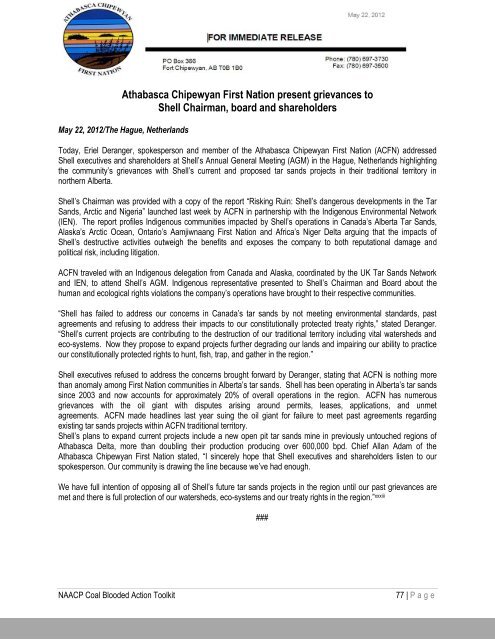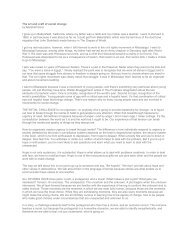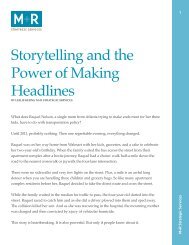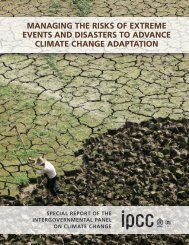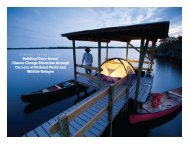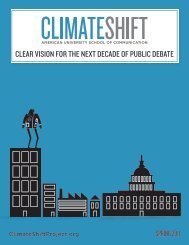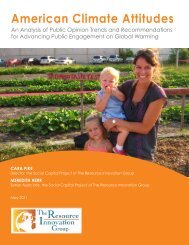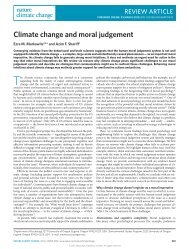Coal Blooded Action Toolkit - Climate Access
Coal Blooded Action Toolkit - Climate Access
Coal Blooded Action Toolkit - Climate Access
- No tags were found...
Create successful ePaper yourself
Turn your PDF publications into a flip-book with our unique Google optimized e-Paper software.
Athabasca Chipewyan First Nation present grievances toShell Chairman, board and shareholdersMay 22, 2012/The Hague, NetherlandsToday, Eriel Deranger, spokesperson and member of the Athabasca Chipewyan First Nation (ACFN) addressedShell executives and shareholders at Shell’s Annual General Meeting (AGM) in the Hague, Netherlands highlightingthe community’s grievances with Shell’s current and proposed tar sands projects in their traditional territory innorthern Alberta.Shell’s Chairman was provided with a copy of the report “Risking Ruin: Shell’s dangerous developments in the TarSands, Arctic and Nigeria” launched last week by ACFN in partnership with the Indigenous Environmental Network(IEN). The report profiles Indigenous communities impacted by Shell’s operations in Canada’s Alberta Tar Sands,Alaska’s Arctic Ocean, Ontario’s Aamjiwnaang First Nation and Africa’s Niger Delta arguing that the impacts ofShell’s destructive activities outweigh the benefits and exposes the company to both reputational damage andpolitical risk, including litigation.ACFN traveled with an Indigenous delegation from Canada and Alaska, coordinated by the UK Tar Sands Networkand IEN, to attend Shell’s AGM. Indigenous representative presented to Shell’s Chairman and Board about thehuman and ecological rights violations the company’s operations have brought to their respective communities.“Shell has failed to address our concerns in Canada’s tar sands by not meeting environmental standards, pastagreements and refusing to address their impacts to our constitutionally protected treaty rights,” stated Deranger.“Shell’s current projects are contributing to the destruction of our traditional territory including vital watersheds andeco-systems. Now they propose to expand projects further degrading our lands and impairing our ability to practiceour constitutionally protected rights to hunt, fish, trap, and gather in the region.”Shell executives refused to address the concerns brought forward by Deranger, stating that ACFN is nothing morethan anomaly among First Nation communities in Alberta’s tar sands. Shell has been operating in Alberta’s tar sandssince 2003 and now accounts for approximately 20% of overall operations in the region. ACFN has numerousgrievances with the oil giant with disputes arising around permits, leases, applications, and unmetagreements. ACFN made headlines last year suing the oil giant for failure to meet past agreements regardingexisting tar sands projects within ACFN traditional territory.Shell’s plans to expand current projects include a new open pit tar sands mine in previously untouched regions ofAthabasca Delta, more than doubling their production producing over 600,000 bpd. Chief Allan Adam of theAthabasca Chipewyan First Nation stated, “I sincerely hope that Shell executives and shareholders listen to ourspokesperson. Our community is drawing the line because we’ve had enough.We have full intention of opposing all of Shell’s future tar sands projects in the region until our past grievances aremet and there is full protection of our watersheds, eco-systems and our treaty rights in the region.” xxxiii###NAACP <strong>Coal</strong> <strong>Blooded</strong> <strong>Action</strong> <strong>Toolkit</strong>77 | P a g e


